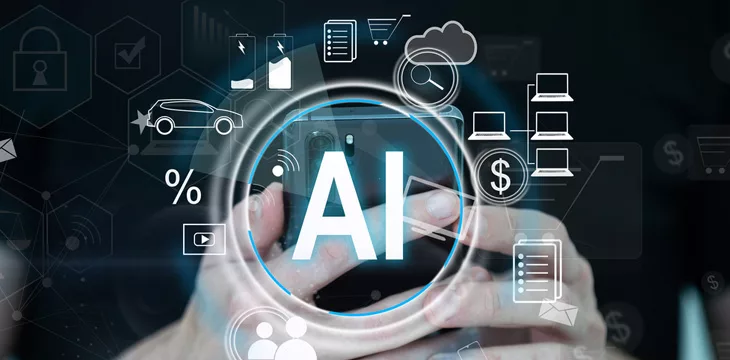|
Getting your Trinity Audio player ready...
|
Companies using artificial intelligence (AI) to produce content will have to notify consumers under a new bill passed by the Pennsylvania House of Representatives.
House Bill 1598 was sponsored by Democratic State Rep. Chris Pielli and sailed through the house with a 146-54 vote, with the Democrats voting unanimously in support while the Republicans were split. It now heads to the Senate for consideration.
The bill is not anti-AI—it simply seeks to protect consumers, Pieli told lawmakers before the vote.
“This is not an anti-AI bill. This is not a bill that states you can’t use AI in advertising. Advertisers, you can use as much legal AI content as you want. This bill is simple: If it’s AI, it has to say it’s AI. Buyer beware,” he said.
AI has become prevalent in producing content, making it critical to protect consumers, Pieli added.
“…how can a consumer fulfill their responsibility when they don’t know if what they are looking at is real or not? What if seeing is no longer believing and the term ‘I saw it with my own eyes’ no longer has merit?”
If it sails through the Senate, the bill will amend Pennsylvania’s Unfair Trade Practices and Consumer Protection Law to now demand “clear and conspicuous disclosure” whenever AI is used in consumer-facing content, including video, text, images, and audio.
While the lawmakers backed the bill, two major lobby groups voiced their opposition.
The first is the Pennsylvania Chamber of Business and Industry, which claims it would expose businesses to new avenues for litigation. The broad nature of the new bill means a business can be sued for AI use even when it hasn’t used the technology for deceptive purposes, the chamber laments.
Part of the bill requires companies to disclose the use of AI when the consumer first interacts with the AI-generated content. This requirement is unrealistic, argues TechNet, a bipartisan network of tech CEOs whose members include AI leaders like Google (NASDAQ: GOOGL), OpenAI, Apple (NASDAQ: AAPL), and Meta (NASDAQ: META).
“For example, how does a football broadcast that uses AI to show predictive visual cues know when it’s the first time a consumer is interacting with their AI?” posed Margaret Durkin, the director for the mid-Atlantic at TechNet.
The organization pledged to work with legislators in the state to iron out some of the sticking points and make it easier for its members to comply.
In order for artificial intelligence (AI) to work right within the law and thrive in the face of growing challenges, it needs to integrate an enterprise blockchain system that ensures data input quality and ownership—allowing it to keep data safe while also guaranteeing the immutability of data. Check out CoinGeek’s coverage on this emerging tech to learn more why Enterprise blockchain will be the backbone of AI.
Watch: Artificial intelligence needs blockchain

 08-09-2025
08-09-2025 





